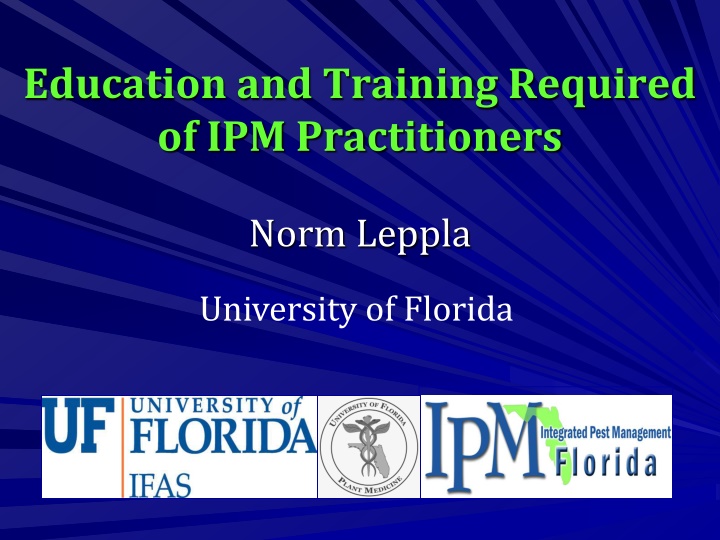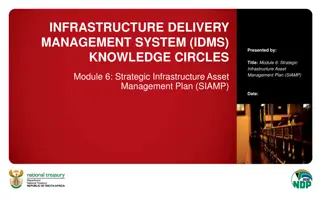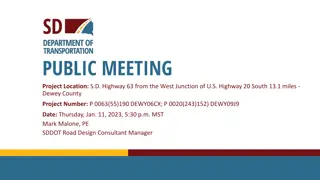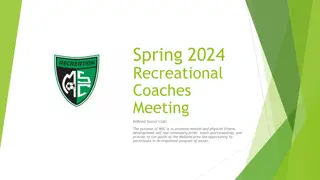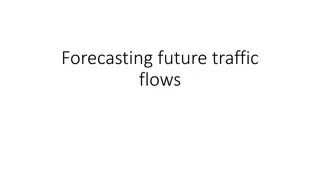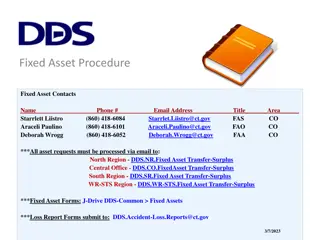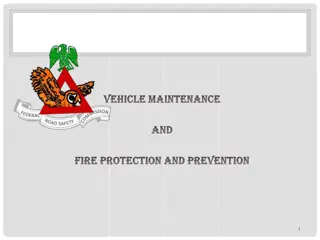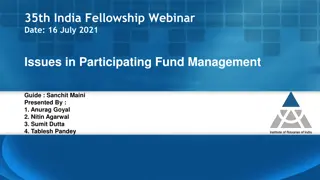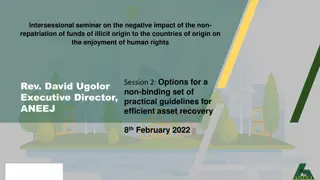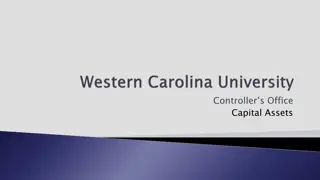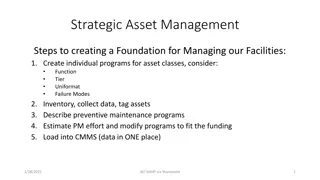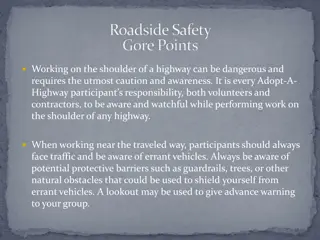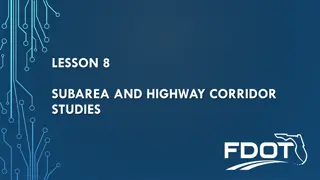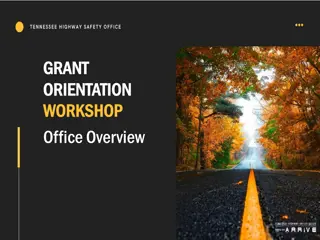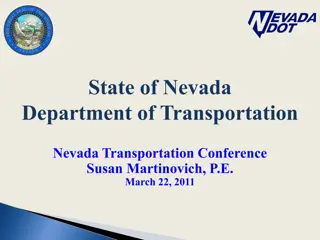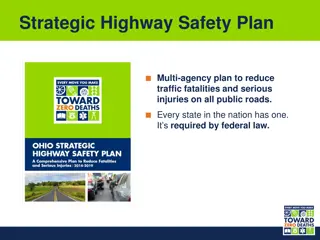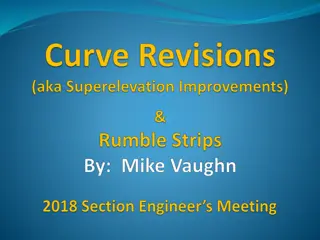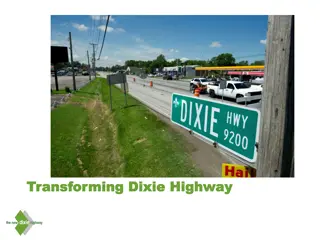Midland Service Improvement Group - Highway Maintenance and Asset Management
Midland Service Improvement Group focuses on highway maintenance and asset management, utilizing incentivized funding and risk-based approaches. The group emphasizes communication strategies, safety inspections, and developing frameworks for training organizations to enhance highway infrastructure maintenance.
Download Presentation

Please find below an Image/Link to download the presentation.
The content on the website is provided AS IS for your information and personal use only. It may not be sold, licensed, or shared on other websites without obtaining consent from the author.If you encounter any issues during the download, it is possible that the publisher has removed the file from their server.
You are allowed to download the files provided on this website for personal or commercial use, subject to the condition that they are used lawfully. All files are the property of their respective owners.
The content on the website is provided AS IS for your information and personal use only. It may not be sold, licensed, or shared on other websites without obtaining consent from the author.
E N D
Presentation Transcript
Education and Training Required of IPM Practitioners Norm Leppla University of Florida
IPM Education and Training Prevent pest outbreaks through habitat manipulation and other cultural practices Experience with the pest habitats, e.g., crops or buildings Ability to Identify key pest and beneficial organisms Know the life cycles of the host plants, pests, and beneficials
IPM Education and Training Master scouting and other monitoring techniques Apply damage, economic and other action thresholds Design systems of mitigation that minimize environmental impacts Practice safe and appropriate use of pesticides and other IPM tactics
IPM Education and Training Understand the ecology and adaptability of the organisms Know current laws and regulations pertinent to pest management Be able to rapidly access pest management information Be involved in pest management and related organizations
IPM System Pest outbreaks & disease epidemics Environmental contamination Human health hazards Pest mgmt. costs REDUCE INCREASE Reliability Sustainability Chem Biological Control Cultural Methods RISK
IPM Competencies Education & experience. An inter- disciplinary education in the traditional scientific disciplines plus hands-on, practical experience is essential. Synthesis & integration. Education and training prepare pest managers to synthesize knowledge from across disciplines because plant health problems often are not limited to a single cause.
IPM Competencies Problem solving & critical thinking. Experience is gained in accurately diagnosing and rapidly solving plant health problems while minimizing environmental impacts and economic losses. Speaking & writing effectively. Superior communication skills, both written and verbal, are required to effectively communicate IPM principles and practices.
Education and Training Required of IPM Practitioners http://ipm.ifas.ufl.edu
